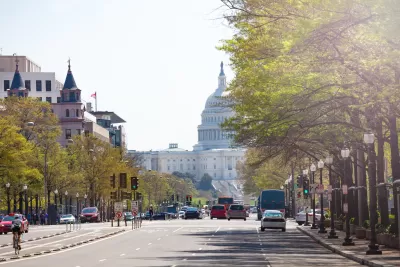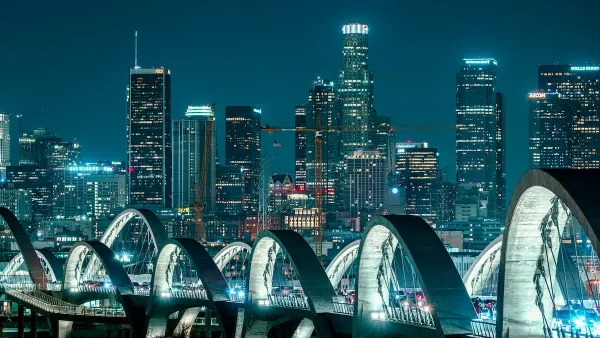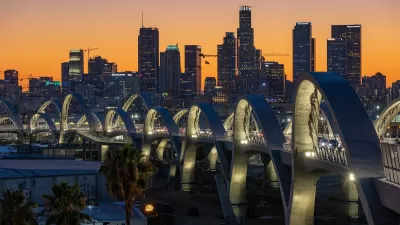To meet its climate goals and revitalize its downtown core, the District must expand its transit and urban amenities to meet the needs of a wider variety of people.

After a disheartening experience at a webinar ostensibly focused on downtown Washington, D.C.’s potential for post-pandemic economic recovery, Caitlin Rogger highlights the need for more multifaceted, multimodal investment in the District in a piece for Greater Greater Washington.
For Rogger, “Downtown recovery will take a lot more than just drivers: a key component is making it easy to get downtown without a car.” But the dismissive attitude of District officials and delayed transit projects signal a lack of willingness to engage with transit users, pedestrians, and cyclists and cater transportation options to their needs.
Moreover, it reflects an overall failure to engage with the needs of parents, elderly people, disabled people, and other groups. “Choices we make now–from employers subsidizing parking but not transit, to building multi-lane roads that are scary to cross for the young, old, and mobility-impaired, to insisting on full-time in-person work only–will determine who participates.”
Rogger points out that key elements of a successful post-pandemic recovery doesn’t necessarily differ much from things that people have advocated for for decades: “things to do, public space, room for sidewalks, bikes, and transit, good air and sound quality, public art–as opposed to space for cars.”
The District already has goals to reduce driving, lower carbon emissions, and encourage more mixed-use neighborhoods, but policy choices have to support those goals. “Workers aren’t the only type of person who can generate valuable activity–even profitable activity,” Rogger writes. Downtowns must be accessible, safe, and attractive for everyone, not just white-collar workers.
FULL STORY: Downtown DC’s recovery hinges on one word

Planetizen Federal Action Tracker
A weekly monitor of how Trump’s orders and actions are impacting planners and planning in America.

Maui's Vacation Rental Debate Turns Ugly
Verbal attacks, misinformation campaigns and fistfights plague a high-stakes debate to convert thousands of vacation rentals into long-term housing.

San Francisco Suspends Traffic Calming Amidst Record Deaths
Citing “a challenging fiscal landscape,” the city will cease the program on the heels of 42 traffic deaths, including 24 pedestrians.

Defunct Pittsburgh Power Plant to Become Residential Tower
A decommissioned steam heat plant will be redeveloped into almost 100 affordable housing units.

Trump Prompts Restructuring of Transportation Research Board in “Unprecedented Overreach”
The TRB has eliminated more than half of its committees including those focused on climate, equity, and cities.

Amtrak Rolls Out New Orleans to Alabama “Mardi Gras” Train
The new service will operate morning and evening departures between Mobile and New Orleans.
Urban Design for Planners 1: Software Tools
This six-course series explores essential urban design concepts using open source software and equips planners with the tools they need to participate fully in the urban design process.
Planning for Universal Design
Learn the tools for implementing Universal Design in planning regulations.
Heyer Gruel & Associates PA
JM Goldson LLC
Custer County Colorado
City of Camden Redevelopment Agency
City of Astoria
Transportation Research & Education Center (TREC) at Portland State University
Jefferson Parish Government
Camden Redevelopment Agency
City of Claremont





























